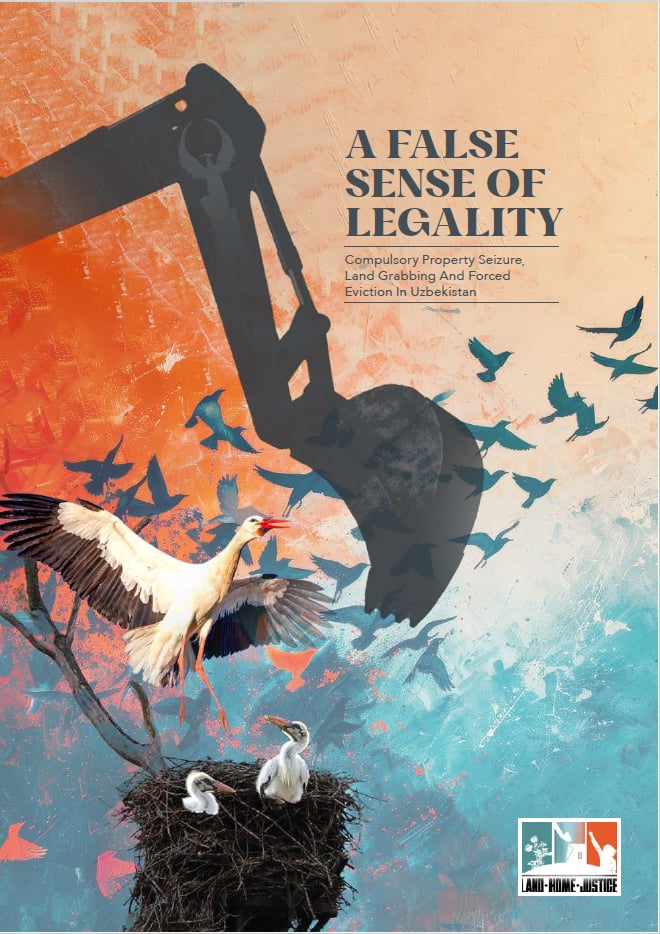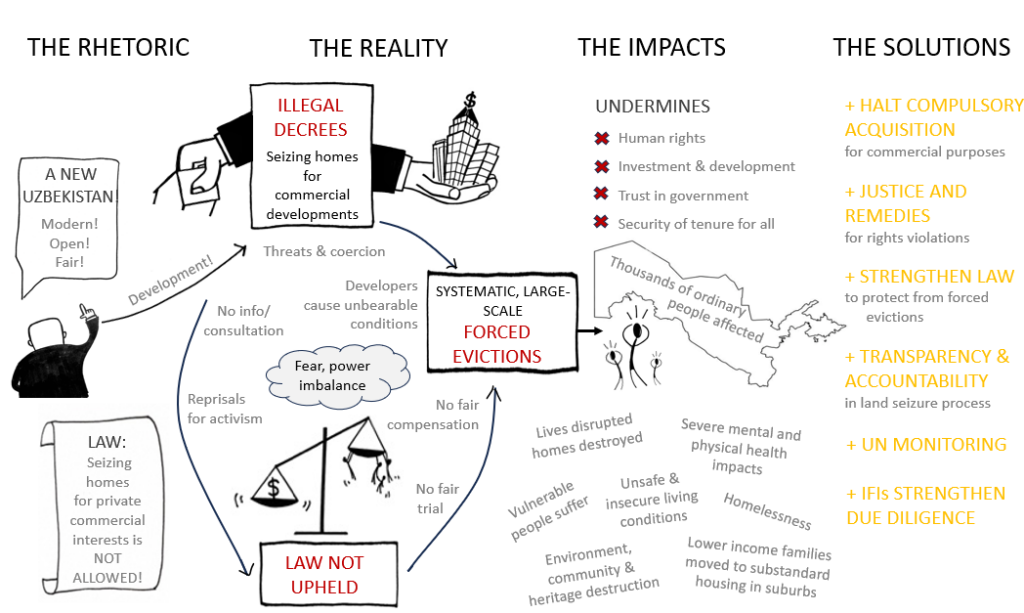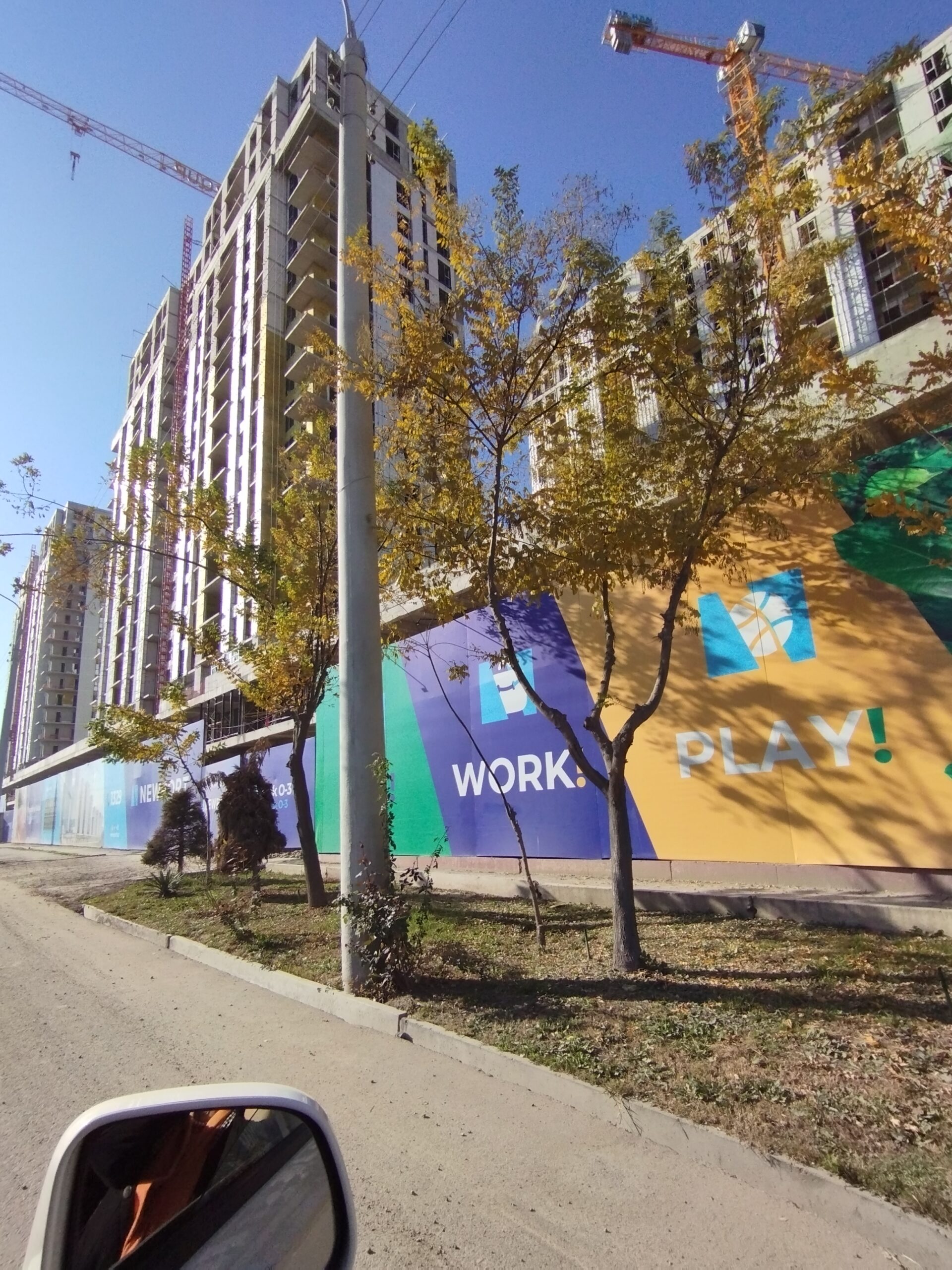Land Home Justice: Report on Compulsory Land Seizure, Property Demolition and Forced Evictions in Cities of Uzbekistan
13.12.2024Land Home Justice (Yer Uy Adolat) is a coalition of academics, civil society professionals and activists fighting to end forced evictions and illegal land grabbing in Uzbekistan. Since 2021, Land Home Justice has been jointly investigating, documenting and conducting advocacy on urban land seizures and forced evictions in Uzbekistan, building on our members’ prior individual efforts.
The new report of the network LAND HOME JUSTICE highlights that Uzbekistan’s ambitious development drive, since the transfer of presidential power in 2016, has involved systematic forced evictions and illegal land grabbing, with thousands and thousands of people estimated to be affected. Presented as progress, the reality is people’s
homes, communities, health and livelihoods are being destroyed, signifying one of Uzbekistan’s most pressing human rights issues today. These ongoing violations indicate a lack of legal certainty and insecure property rights, undermining investment, business growth, and sustainable development in the country.
The report presents the findings of 6 years of investigative research involving interviews, trial monitoring and extensive documentary research by members of the Land Home Justice network: ‘A False Sense of Legality: Compulsory Property Seizure, Land Grabbing And Forced Eviction In Uzbekistan’ (Centre for Public Administration of the Ulster University, December,2024) https://yeruyadolat.uwazi.io/en/entity/ciucpbqihb?page=3
These investigations documented 11 urban development projects in Tashkent and Samarkand, each involving multiple cases of forced evictions.

Several key findings emerged. According to the research, two primary factors drive the pattern of forced evictions and land grabbing identified.
- Firstly, across the documented cases, officials issued illegal decrees or otherwise abused their power to seize and/or transfer land under people’s houses to corporate developers.
- Secondly, there has been a systematic failure of the courts to protect people’s legal rights, enabling illegal land confiscation to persist unabated.
In the majority of cases, the forced evictions and land confiscations were executed for the benefit of private commercial interests rather than “public need,” contravening national legislation on property confiscation, as well as international human rights standards. Furthermore, procedural safeguards set out in national and international law were typically not respected (e.g. the obligation to ensure proper consultation and notice; respecting rights during evictions; ensuring fair and just compensation and alternative housing and remedies).:
See the UN Basic Principles and Guidelines on Development-based Evictions and Displacement; UN Committee on Economic, Social and Cultural Rights (CESCR), General Comment no. 7 on forced evictions.
People interviewed consistently reported being intimidated or coerced by the state or corporate developers into relinquishing their homes and farms, often receiving inadequate compensation.
Urban evictions took place indiscriminately, including at night and regardless of adverse weather conditions or the vulnerability of affected individuals.
Most victims were not able to access remedies due to financial barriers and an absence of fair trial procedures, with courts arbitrarily deciding in favour of officials and developers. In a significant majority of trials monitored, the courts disregarded the letter and spirit of constitutional and legislative protections or used dubious technicalities to dismiss cases, undermining private property rights and validating apparently unlawful expropriation and evictions.
For example, courts used an “analogy of law” to extend legal provisions on the acquisition of property for “public need” to cases for the benefit of corporate developers or referred to provisions of the Housing Code related to evictions from the municipal property. Courts also relied on questionable technicalities to dismiss cases, particularly in cases of judicial review of the legality of government decrees expropriating land and property.
Procedural irregularities, including victims not being invited to hearings, were also observed. The failure of the
courts to protect property rights is a significant catalyst for persisting forced evictions and illegal land grabbing.
The findings underscore the severe and detrimental impact of forced evictions and illegal land expropriation on peoples’ mental and physical well-being, urban communities (such as those of traditional mahalla neighborhoods, minor multi-apartment housing).
In terms of governance, the four large-scale property developments investigated raise serious corruption and money laundering red flags, with international financial institutions including the Asian Development Bank, German Development Bank, European Bank for Reconstruction and Development, International Finance Corporation and World Bank directly exposed to these risks.

Key recommendations:
1) The government adopts a decree immediately pausing expropriation of land and property for the benefit of private commercial interests, in line with existing Uzbek law and UN guidelines requiring states to prohibit forced evictions and illegal land grabs.
The UN Basic Principles and Guidelines on Development-based Evictions and Displacement state: “Any eviction must be (a) authorized by law; (b) carried out in accordance with international human rights law; (c) undertaken solely for the purpose of promoting the general welfared; (d) reasonable and proportional; (e) regulated so as to ensure full and fair compensation and rehabilitation; and (f) carried out in accordance with the present guidelines…..States must adopt legislative and policy measures prohibiting the execution of evictions that are not in conformity with their international human rights obligations. States should refrain, to the maximum extent possible, from claiming or confiscating housing or land, and in particular when such action does not contribute to the enjoyment of human rights. For instance, an eviction may be considered justified if measures of land reform or redistribution, especially for the benefit of vulnerable or deprived persons, groups or communities are involved”…(paras. 21 and 22, emphasis added https://www.ohchr.org/sites/default/files/Documents/Issues/Housing/Guidelines_en.pdf).
2) The government implements a reform program for a human rights compliant policy6 on land and property expropriation, which explicitly prohibits compulsory acquisition for the benefit of private commercial interests, and ensures remedies for people impacted by evictions and loss of livelihood, implementing the UN Committee on Economic, Social and Cultural Rights’ recommendations to Uzbekistan.
- According to the UN Office of the High Commissioner for Human Rights (OHCHR), “Land is not a mere commodity, but an essential element for the realization of many human rights“ and is a “cross-cutting issue that impacts directly on the enjoyment of a number of human rights (see OHCHR and land and human rights, available online: https://www.ohchr.org/en/land)
- The UN Committee on Economic, Social and Cultural Rights (CESCR) has recommended that Uzbekistan: adopt legal and policy measures to ensure that where evictions do take place, they are only ever a last resort, and procedural protections and safeguards are respected, such as conducting genuine consultation, ensuring adequate and reasonable notice, and ensuring the availability of alternative accommodation in a reasonable time, and the provision of legal remedies. See UN Committee on Economic, Social and Cultural Rights, Concluding observations on the third periodic report of Uzbekistan, March 2022).
3) International Financial Institutions build enhanced due diligence into their country strategies on Uzbekistan that adequately address the human rights and money laundering risks in urban and agro-development projects in the country.


